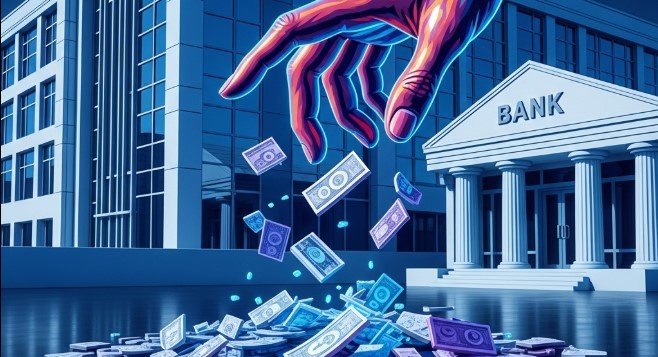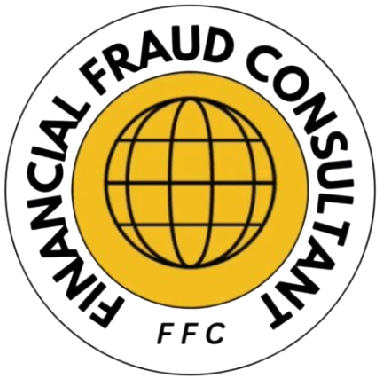
The internet, while a powerful tool for connection and commerce, has also become a hunting ground for scammers.1 Falling victim to an online scam can be a deeply distressing experience, not only emotionally but also financially.2 If you’ve been scammed online, one of the first and most pressing questions is: will your bank refund the lost money?
The answer, unfortunately, isn’t always a straightforward “yes.” Whether or not you’ll receive a refund depends on a variety of factors, including the nature of the scam, how the transaction occurred, and your bank’s policies. Let’s delve into when banks are likely to refund you and the circumstances where they might not.
Legit crypto recovery service
When seeking a legit crypto recovery service, trust is paramount. Our team comprises blockchain forensics experts who utilize advanced tools to trace, analyze, and recover stolen digital assets. We operate with full transparency, providing clear communication and a commitment to ethical practices. Partner with us for a professional and legitimate path to reclaim your crypto.
When Banks Are Likely to Refund You
Generally, banks are more inclined to issue a refund in situations where you did not authorize the transaction, or where they recognize that you were a victim of a sophisticated scam despite taking reasonable precautions. Here are some common scenarios where you might get your money back:
- Unauthorized Transactions:
- If your account was hacked, and money was taken without your knowledge or consent, banks are often legally required to refund these unauthorized transactions [1].3 This could involve a fraudster gaining access to your online banking or using your stolen card details.4
- Example: You check your bank statement and see a transaction you don’t recognize and didn’t authorize. If you report this promptly, the bank will likely investigate and refund the amount if they confirm it was fraudulent.
- Certain Types of Scams Where You Were Deceived (Authorised Push Payment – APP Fraud):
- In cases where you were tricked into transferring money to a scammer (known as Authorised Push Payment fraud), some banks that have signed up for voluntary codes like the Contingent Reimbursement Model (CRM) Code may offer refunds [1].5 This often applies when the bank believes you took reasonable care and the scam was sophisticated.
- Example: You receive a convincing email pretending to be from your builder, requesting an urgent payment to a new account. If you make the transfer and later realize it was a scam, your bank might refund you if they assess that the deception was well-crafted.
- Credit Card Fraud:
- Credit cards often offer stronger fraud protection than debit cards [1].6 Under laws like the Fair Credit Billing Act in the US, your liability for unauthorized credit card charges is often limited to $50, and many banks waive this entirely if you report the fraud promptly [1, 5].7
- Example: Someone uses your stolen credit card to make online purchases. If you report this to your credit card company, they will likely reverse the charges and you won’t be held liable for the full amount.
When Banks Might Not Refund You
Conversely, banks may refuse a refund if they believe you were negligent, authorized the payment (even if under false pretenses), or delayed in reporting the issue.8 Here are some situations where a refund might be denied:
- You Authorised the Transaction:
- If you willingly sent money, even if you were later scammed, the bank might argue that you authorized the payment and are therefore not entitled to a refund [1].9 This is a common sticking point in many scam cases.
- Example: You pay for goods online that never arrive, or you invest in a cryptocurrency scheme that turns out to be a Ponzi. If you willingly sent the money, getting it back through your bank can be challenging.
- You Acted Negligently:
- If the bank believes you were careless with your security details (e.g., sharing passwords or PINs, ignoring scam warnings), they might refuse a refund [1].
- Example: You receive a call from someone claiming to be your bank and you disclose your online banking password and one-time passcode. If they then use this information to steal money, the bank may argue that you were negligent.
- You Delayed Reporting the Fraud:
- Most banks have a timeframe within which you must report unauthorized transactions (often within 60 days of your statement) [1].10 Delaying the report can reduce your chances of getting a refund.11
- Example: You notice a suspicious transaction from three months ago and only now report it. The bank might refuse a refund because of the delay.
- Payments via Irreversible Methods:
- Certain payment methods are very difficult or impossible to reverse, such as wire transfers or payments made through some payment apps or in cryptocurrency [1]. If you used these methods to pay a scammer, recovering the funds through your bank is often not possible.
- Example: You send money to a scammer via a wire transfer. Once the transfer is complete, your bank usually cannot retrieve those funds.12
What to Do If You’ve Been Scammed
If you think you’ve been scammed online, immediate action is crucial:
- Report it Immediately to Your Bank: Contact your bank or card issuer right away. The sooner you report it, the better the chances of them being able to take action, such as freezing your account or attempting to recover funds [1].
- Gather Evidence: Keep records of all communications with the scammer, transaction details, and any other relevant information.13 This will be helpful when you file a claim with your bank.
- Report to the Authorities: In many jurisdictions, you should also report the scam to a dedicated fraud reporting agency (e.g., Action Fraud in the UK, the FTC in the US) [1, 3].14 This helps authorities track scams and potentially prevent others from becoming victims.
- Request a Formal Review: If your bank initially refuses a refund, ask for a formal review of your case, especially if you believe they haven’t considered all the evidence [1].
- Escalate if Necessary: If you’re unhappy with your bank’s final decision, you usually have the option to escalate the complaint to a financial ombudsman service, which can independently investigate your case [1].15
Key Takeaways for Getting a Potential Refund
- Act quickly: Report the scam to your bank as soon as you realize you’ve been victimized.
- Provide evidence: Support your claim with any relevant documentation.
- Know your rights: Understand your bank’s policies and your consumer protection rights.
- Be persistent: If you believe you have a valid claim, don’t hesitate to escalate the issue.
While banks are increasingly aware of online scams and have measures in place to help victims, the responsibility also lies with consumers to be vigilant and take precautions online. Understanding when a bank is likely to refund you can help you navigate the aftermath of a scam, but prevention remains the best defense.
Have you ever had to deal with an online scam? What was your experience with getting a refund from your bank? Share your thoughts in the comments below.
References
[1] Action Fraud. “Do Banks Refund Scammed Money? Here’s What To Do If They Don’t.” [https://www.actionfraud.org.uk/do-banks-refund-scammed-money/](https://www.actionfraud.org.uk/do-banks-refund-scammed-money/) (Accessed May 25, 2025).
[2] ExpressVPN. “Do banks refund scammed money? How to recover your money.” https://www.expressvpn.com/blog/do-banks-refund-scammed-money/(https://www.expressvpn.com/blog/do-banks-refund-scammed-money/) (Accessed May 25, 2025).
[3] LifeLock. “Do banks refund scammed money? How to get your money back from a scammer.” [https://lifelock.norton.com/learn/fraud/do-banks-refund-scammed-money](https://lifelock.norton.com/learn/fraud/do-banks-refund-scammed-money) (Accessed May 25, 2025).
[4] Surfshark. “Do banks refund scammed money?” [https://surfshark.com/blog/do-banks-refund-scammed-money](https://surfshark.com/blog/do-banks-refund-scammed-money) (Accessed May 25, 2025).
[5] Aura. “Do Banks Refund Scammed Money? (How To Dispute Fraud).” [https://www.aura.com/learn/do-banks-refund-scammed-money](https://www.aura.com/learn/do-banks-refund-scammed-money) (Accessed May 25, 2025).




